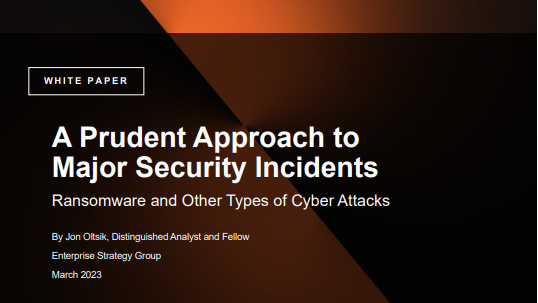Durham police look to AI for custody judgements
An AI could soon help Durham police to decide whether or not to keep suspects behind bars

Durham police are planning to use an AI to help officers make decisions on whether suspects should be kept in custody.
The Harm Assessment Risk Tool (HART) has been trained on Durham police records dating from 2008 to 2012, and uses this information to gauge whether a suspect is at a low, medium or high risk of offending.
The system was trialled in 2013, with the results of its decisions monitored over the proceeding two years. Researchers found that HART's predictions for low-risk suspects were right 98% of the time, and predictions for high-risk suspects were right 88% of the time.
During this trial period, the AI wasn't used to influence officer's decisions. But talking to the BBC, Sheena Urwin, head of criminal justice at Durham Constabulary, said she imagined it would become a live tool "in the next two to three months".
To make a decision on a suspect's risk level, Hart factors in considerations such as the seriousness of alleged crime and previous criminal history. It currently leans towards a cautious outlook, meaning it's more likely to classify a suspect as medium or high -- it wouldn't do the perception of HART any favours if it started releasing dangerous criminals.
One big concern is that -- as neutral as algorithms may seem -- they tend to be influenced by the human hands that make them. Last year a widely cited ProPublica article revealed how a comparable piece of software to HART was biased against black people. Ensuring human prejudices don't make their way into AI is a difficult task, one that's currently facing large swathes of the AI community.
In terms of HART, the AI does factor in elements such as gender and postcode, although its developers say these aspects won't be used on their own to make decisions. "Simply residing in a given postcode has no direct impact on the result, but must instead be combined with all of the other predictors in thousands of different ways before a final forecasted conclusion is reached," HART's creators told a parliamentary inquiry on algorithmic decision-making.
Get the ITPro daily newsletter
Sign up today and you will receive a free copy of our Future Focus 2025 report - the leading guidance on AI, cybersecurity and other IT challenges as per 700+ senior executives
The plan is to use the AI in an advisory role in a random selection of cases. If it's successful, HART could be used for more than three-tier risk assessment. Talking to the BBC, Professor Lawrence Sherman -- director of the University of Cambridge's Centre for Evidence-Based Policing -- said there is scope to use the AI to help decide how long a suspect should be kept in custody, whether they should be released on bail with a charge, or whether they should be released after a charge has been made.
All of this is on an advisory basis, but it inevitably raises questions about how far AI-directed decisions could go within policing. Would machine judgements be more accurate, or do they lack the human, subjective knowledge of an experienced officer?
-
 Google Cloud is leaning on all its strengths to support enterprise AI
Google Cloud is leaning on all its strengths to support enterprise AIAnalysis Google Cloud made a big statement at its annual conference last week, staking its claim as the go-to provider for enterprise AI adoption.
By Rory Bathgate Published
-
 Bigger salaries, more burnout: Is the CISO role in crisis?
Bigger salaries, more burnout: Is the CISO role in crisis?In-depth CISOs are more stressed than ever before – but why is this and what can be done?
By Kate O'Flaherty Published
-
 A prudent approach to major security incidents
A prudent approach to major security incidentsWhitepaper Establish an effective strategy across four phases
By ITPro Published
-
 Cybercriminals are resilient. How about you?
Cybercriminals are resilient. How about you?Whitepaper Stay ahead of those agile bad actors
By ITPro Published
-
 SpaceX bug bounty offers up to $25,000 per Starlink exploit
SpaceX bug bounty offers up to $25,000 per Starlink exploitNews The spacecraft manufacturer has offered white hats immunity to exploit a wide range of Starlink systems, with a dedicated report page
By Rory Bathgate Published
-
 Judge says LinkedIn cannot block third-parties from accessing profile data
Judge says LinkedIn cannot block third-parties from accessing profile dataNews The ruling may have implications for social media users wishing to control how their data is collected
By Dale Walker Published
-
 Privacy concerns curtail consumers' appetite for AI
Privacy concerns curtail consumers' appetite for AINews Study finds that AI's potential clashes with people's desire for privacy
By Joe Curtis Published
-
 How to handle personal data (without getting hacked)
How to handle personal data (without getting hacked)In-depth The IT Pro Panel asks how you can handle personal data safely
By Joe Curtis Published
-
 Does government foster opportunities for Big Data pioneers?
Does government foster opportunities for Big Data pioneers?News Parliamentary committee to examine how Whitehall could better serve entrepreneurs in world of Big Data
By Joe Curtis Published
-
 Camden Council creates database full of residents’ data
Camden Council creates database full of residents’ dataNews Authority works with IBM to use insights to improve debt collection and tackle fraud
By Joe Curtis Published